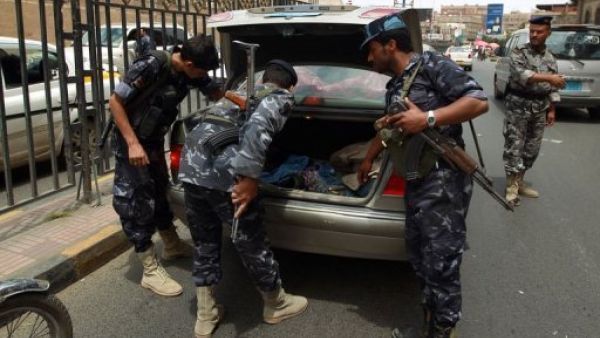Assailants in Yemen attempted to capture a Japanese diplomat Sunday, stabbing him repeatedly when he fought back. The kidnap of foreigners and wealthy local businessmen in Yemen is largely a commercial activity, somewhat devoid of political or terrorist ambitions, experts say.
Abductions are also a method of numerous tribes pressuring the country’s weak government into funding roads and other infrastructural projects, according to an October report in the Yemen Times.
Another “less innocent” model of kidnapping involves the selling of abducted foreigners to al-Qaeda, which then demands a far larger ransom, the report adds.
More than 200 people have been kidnapped in the country in the last 15 years, most of them later released unharmed, according to Agence France-Presse.
Most of these kidnappings are purely for profit rather than political reasons, said Mustapha Noman, Yemen’s ambassador to Spain.
“I don’t think there’s a political motivation behind the kidnappings… It’s just a lucrative job. if a gang can kidnap and make money, why not?” Noman told Al Arabiya News.
Peter Lehr, a lecturer in terrorism studies at the Scotland-based University of St. Andrews said kidnapping in Yemen is solely a “commercial enterprise.”
He added: “If it’s basically somebody from the West, American or British, then there might be kind of a political agenda, but even then, it’s mainly about money.”
Some of the victims who were later released have described good treatment at the hands of kidnappers, almost to the point of sentimentality.
A Dutch journalist and her partner released last week from the capital Sanaa told reporters that they were “treated very well... the Yemeni way, so that was very nice.”
The UK government’s website says relatively wealthy foreigners in Yemen have a “very high threat” of kidnapping.
Yemen’s government is “strong opposed” to paying ransoms, the website states. Additionally, the British government is not usually interested in making “substantive concessions” to hostage-takers.
With the Yemeni government reluctant to act on abductions, foreign authorities sometimes sidestep Sanaa to get hostages released.
A Swiss teacher kidnapped and held for ransom for a nearly a year was released in February due to Qatari mediation, according to the UK-based KRmagazine.com, a website that provides insight into global kidnapping trends.
Noman said: “The hostage was released after the Qatari intervention that happened without the cooperation of the government… Unfortunately, a ransom was paid.”
Sanaa is attempting to restore law and order to the impoverished nation since former President Ali Abdullah Saleh stepped aside in late 2011 following mass protests against his 33-year-rule.
The strongman’s exit from power has gutted the country’s security situation, leaving a ripe environment for tribes and gangs to conduct kidnappings at will.
“During the last two years, there has been a dismantling of all of the security forces and the army because of the rivalries that have arisen over the past two years,” said Noman.
The aftermath of Saleh’s exit from power has led some to wish for his return, Noman added.
“People expected things to get better, not to get worse, and unfortunately we’ve seen an increase in the number of kidnappings, killings, robberies,” he said.
However, despite weak security across Yemen, tribes and gangs could find kidnapping challenging, partly due to the large amount of time it can take to receive a ransom payment.
Ed Blanche, a Beirut-based insurgency and counter-terrorism analyst, said: “It’s a difficult operation for anybody to do, because it means you have to keep your hostages alive.”
He added: “It’s a costly operation, and you’ve got to have patience, which means that these things string out for years sometimes, without any discernible result.”
Noman said that in addition to targeting foreigners, wealthy Yemeni businessmen are also being kidnapped and held for ransom.
“Every foreigner now in Yemen is a target, and every wealthy businessman is a target,” he added.
The targeting of the business community is a new low not previously witnessed in the country, the diplomat said.
“Now, all the businessmen in Yemen move with guards and armored cars, and we’ve never seen that before,” he said.
Sanaa has no apparent initiative to end the culture of kidnappings, said Noman.
“There’s no glimpse of hope that things are improving. The government has a lot of soldiers, a lot of machinery, a lot of arms, so why don’t they use them?”








